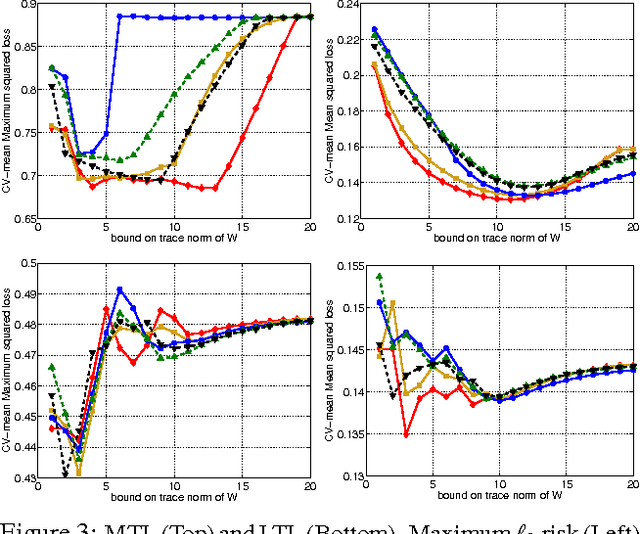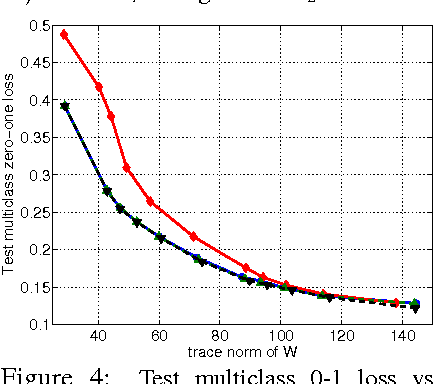Minimax Multi-Task Learning and a Generalized Loss-Compositional Paradigm for MTL
Paper and Code
Sep 13, 2012



Since its inception, the modus operandi of multi-task learning (MTL) has been to minimize the task-wise mean of the empirical risks. We introduce a generalized loss-compositional paradigm for MTL that includes a spectrum of formulations as a subfamily. One endpoint of this spectrum is minimax MTL: a new MTL formulation that minimizes the maximum of the tasks' empirical risks. Via a certain relaxation of minimax MTL, we obtain a continuum of MTL formulations spanning minimax MTL and classical MTL. The full paradigm itself is loss-compositional, operating on the vector of empirical risks. It incorporates minimax MTL, its relaxations, and many new MTL formulations as special cases. We show theoretically that minimax MTL tends to avoid worst case outcomes on newly drawn test tasks in the learning to learn (LTL) test setting. The results of several MTL formulations on synthetic and real problems in the MTL and LTL test settings are encouraging.
 Add to Chrome
Add to Chrome Add to Firefox
Add to Firefox Add to Edge
Add to Edge